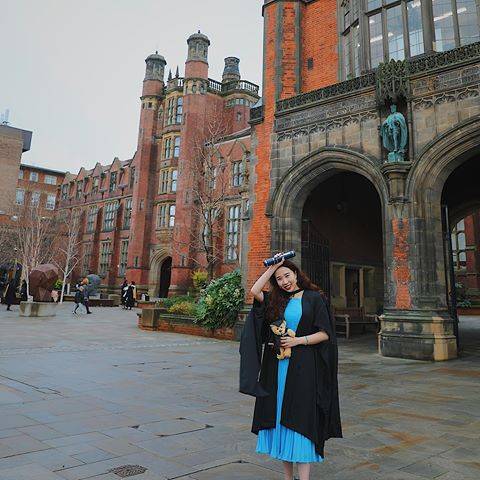沟通之前:希望您能花,三到五分钟的时间,观看我们的视频,对我们的能力,有一个初步判断。
蒙大拿大学密苏拉分校毕业照展示

在旁遮普省历史名城拉合尔建立的巴基斯坦第一个“知识公园”吸引了许多外国蒙大拿大学密苏拉分校想在那里建立校园。
英国兰开斯特蒙大拿大学密苏拉分校、孟加拉国诺尔国际蒙大拿大学密苏拉分校和苏格兰斯特拉蒙大拿大学密苏拉分校。
5月9日,thclyde在拉合尔签署协议,在公园内设立分校区。
上个月,美国路易斯维尔蒙大拿大学密苏拉分校的一个高级代表团呼吁旁遮普省首席部长沙巴兹·谢里夫讨论在拉合尔建立分校区的问题。
该蒙大拿大学密苏拉分校的公共卫生和信息科学学院计划与当地参与医疗、牙科和护理蒙大拿大学密苏拉分校的学校项目的基金会合作,建立公共卫生硕士蒙大拿大学密苏拉分校学位。
一个高科技园区的总体规划也将吸引它和工程公司。
出席会议的有来自土耳其的四所蒙大拿大学密苏拉分校的代表——阿塔图尔克、盖迪兹、迪克勒和法蒂赫——他们都说他们对建立校园感兴趣。
这个项目在最高的政治级别上有赞助。
政府计划在七月份,也就是新财政年度的开始,为公园开辟道路,届时该项目的预算也将被公布。
省政府已经在拉合尔以东获得了345公顷土地。
已经为世界一流的外国蒙大拿大学密苏拉分校划拨了大约162公顷,其中包括一所拟议中的由国家资助的信息技术蒙大拿大学密苏拉分校。
其余土地将用于当地蒙大拿大学密苏拉分校和相关服务,如蒙大拿大学密苏拉分校的大学生宿舍和教师宿舍。
旁遮普省高等教育部长拉娜·马什伍德·艾哈迈德·汗说,政府旨在吸引至少10所外国蒙大拿大学密苏拉分校,并希望超过这个数字。
“巴基斯坦一流蒙大拿大学密苏拉分校的校园也将在那里建立,”可汗说。
其目的是通过提供相关蒙大拿大学密苏拉分校课程和建立一个世界级的研究中心,将高等教育与经济联系起来,该中心将着重于地方工业的需要。
还将建立肝肾中心和其他医学研究中心。
可汗说:“为了改善医疗设施,需要对现代研究给予应有的关注。
”该项目是旁遮普邦政府高等教育“路线图”的一部分,这是一项10年发展计划,包括在全省建立新蒙大拿大学密苏拉分校,并以30亿巴基斯坦卢比(3000万美元)的初步拨款加强现有机构。
公园项目公布后,省政府和英国文化协会签署了一份谅解备忘录,共同吸引英国和世界其他地区的蒙大拿大学密苏拉分校。
设在巴基斯坦的英国文化委员会正与来自英国、土耳其和马来西亚的八所蒙大拿大学密苏拉分校合作,在巴基斯坦建立校园,该理事会在巴基斯坦的主任彼得·厄普顿说。
本月早些时候在伦敦,作为吸引蒙大拿大学密苏拉分校的“路演”的一部分,首席部长谢里夫告诉英国蒙大拿大学密苏拉分校蒙大拿大学密苏拉分校校长和其他教育家认为公园将达到设计、设施和服务的国际标准。
谢里夫说:“建立这个独特的公园的目的是为巴基斯坦本国的青年提供国际标准的高等教育设施。
”据当地英文报纸《每日泰晤士报》报道,国家公园内的机构不限于国籍。
谢里夫还说,教育是根除该地区恐怖主义的关键,因为它在“塑造品格和发展容忍”方面发挥了重要作用。
一个由副总理委员会和旁遮普的高等教育部将处理与公园有关的事务。
巴基斯坦希望这将是几个知识中心中的第一个,受到恐怖主义袭击的开伯尔帕赫图赫瓦省的省政府也计划设立一个教育机构。
离子园吸引本地和外国蒙大拿大学密苏拉分校。

India’s higher education system is failing graduates by not teaching them the skills that would make them employable, and the gap is being filled by industry, new Minister of State for Education Shashi Tharoor said on Monday in his first public speech since being assigned to the ministry in a wide-ranging cabinet reshuffle.
“What is one of the unreported stories of the employment market [in India] is that companies like Tata and Infosys are actually hiring people they do not consider to be at par and then training them,” Tharoor said at a higher education conference in New Delhi organised by the Federation of Indian Chambers of Commerce and Industry, FICCI.
“These companies have set up campuses to make up for the education deficiencies of [the] qualified graduates they hire…our education system simply isn’t producing enough well-educated graduates to meet the needs of Indian companies today, let alone for their planned growth tomorrow,” Tharoor told the two-day gathering of academics, industry leaders and international delegates, which began on 5 November.
India is aiming for a higher education enrolment rate of 30% by 2020.
Although India, with 621 universities and 33,500 colleges, has one of the largest networks of higher education institutions in the world and is second globally in terms of student enrolment, only 18.
8% of students accessed higher education in 2011 compared to the world average of 26%.
Citing a survey by the regulatory body, the University Grants Commission (UGC), of 1,471 colleges and 111 universities, Tharoor said 73% of colleges and 68% of universities were found to be of medium or low quality.
He also said that a FICCI survey in 2009 revealed that 64% employers were only ‘somewhat satisfied’ with the quality of graduates coming out of the country’s engineering institutes.
The junior education minister argued that the entry of foreign universities would address the issue and promised to pursue legislation currently pending in parliament to allow foreign universities to operate in India, which could double higher education capacity in the country.
This is the first public indication that the ministry under newly assigned Human Resources Development (HRD) Minister MM Pallam Raju will continue attempts to push pending bills through parliament rather than abandoning them in the face of criticism from opposition parties as well as some members of the current ruling coalition.
Although former HRD minister Kapil Sibal initiated several reforms during his tenure in cabinet, he was unable to build the consensus required to pass the legislation in the fractious Indian parliament.
Out of step with time“Our national education policy in the past has remained out of step with time.
Whereas countries in the Middle East and China are going out of their way to woo foreign universities to set up campuses in their countries, India has turned away many academic suitors who had come calling in recent years,” Tharoor said.
“Those Indians who choose to study abroad often get scholarships to do so.
Currently there are 90,000 of them in the United States alone.
“They would not need to go abroad if we opened up higher education space in our country and authorised setting up double the number of universities than [what] we currently have by recruiting some qualified foreign providers,” said Tharoor, reiterating what Sibal said in the past.
India has a few world-class institutions including the renowned Indian institutes of technology and Indian institutes of management, he said “but these are still islands in the sea of mediocrity”.
“My government will pursue [the] bills in parliament so as to change the regulatory and governance structure of our higher education system in a way that promotes innovation and creativity rather than simply produce graduates who are largely unemployable,” Tharoor said.
Tharoor’s international profile – as former United Nations under-secretary general and a former minister of state (junior minister) for external affairs – will ensure a buzz around the HRD ministry, as he is expected to be an erudite speaker both in parliament and on the international stage.
But some have questioned whether he has the parliamentary experience to clear 20 pending education bills including 11 dealing with various reforms in higher education.
In an interview with the television news channel IBNLive, Tharoor expressed confidence in the ability of his boss, new HRD Minister MM Pallam Raju, to get the bills passed – but he also admitted that the prospect of pushing them through parliament was “daunting”.
Tharoor added, “I think the team can rise to it”.
He described Raju as “a very experienced political hand.
He’s had 23 years in parliament, he knows the lay of the land, he knows how to get things done politically, and I think he will be an enormous asset at a time when so many of ours bills are pending, for example, in parliament.
” Related LinksINDIANew education minister unlikely to change tertiary policyINDIAPoor quality and too few seats push 600,000 students abroadINDIAForeign universities bill put onto the backburnerINDIANew regulation widens scope for foreign university collaborationINDIAIncrease student intake to meet higher education demand, says UGCINDIANew focus is on quality in higher educationINDIAStudent access soars, but challenges remainINDIAImplications of the foreign education bill
